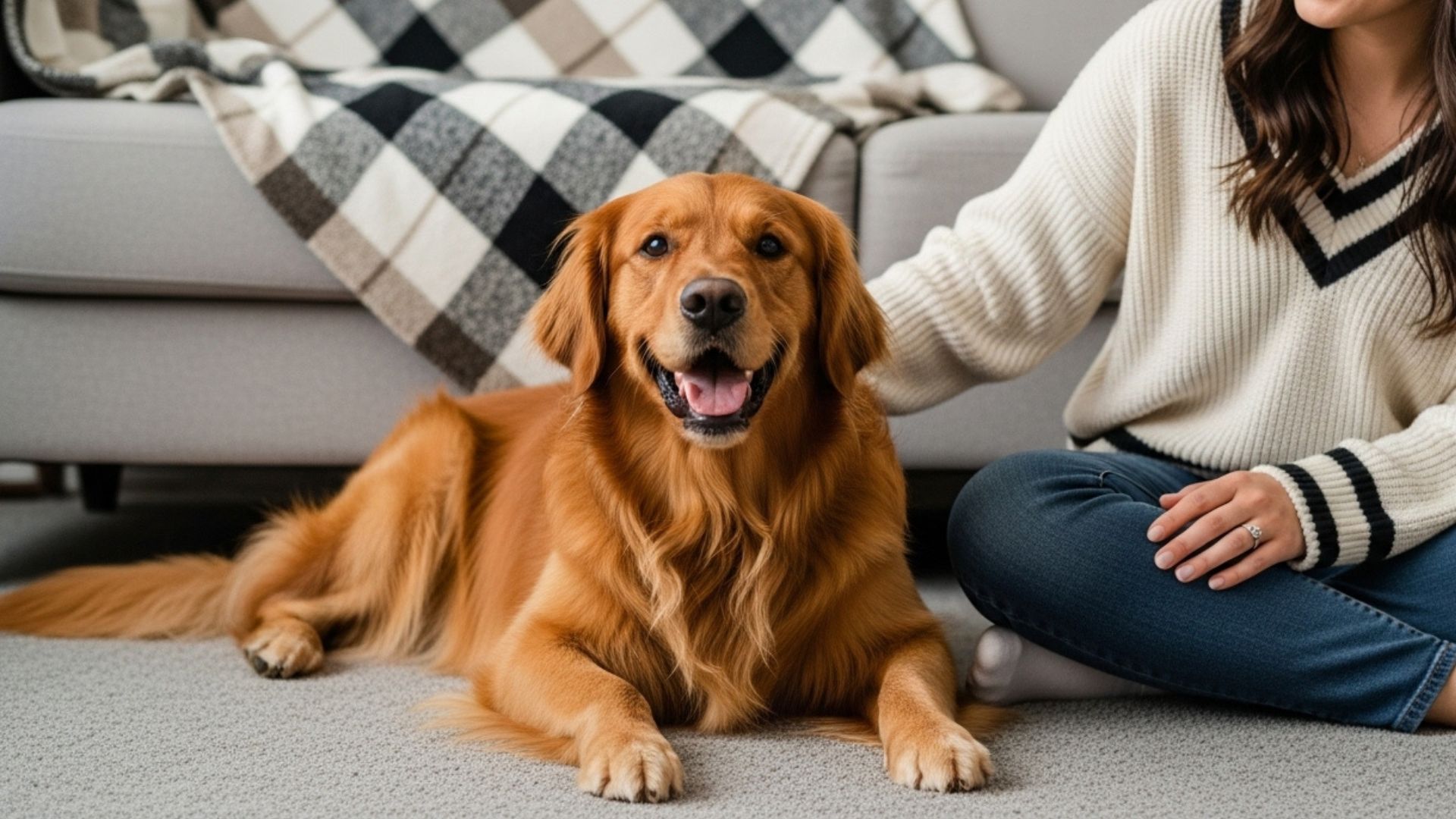Dogs have an extraordinary ability to form deep emotional connections with their human companions. A recent study published in Psychology Today highlights how these bonds enhance mental health through connection, purpose, stress reduction, and emotional healing.
Among the myriad of breeds, some stand out for their exceptional ability to forge these profound connections. Their intuitive understanding of human emotions makes them ideal companions for those seeking a deep, emotional bond.
These popular dogs don’t just live with us—they live for us. Their presence offers comfort during challenging times and joy during moments of happiness. Their ability to sense and respond to our emotions fosters a unique and lasting connection.
In this article, we’ll explore seven dog breeds celebrated for their strong attachment bonds with owners. Whether you’re seeking a loyal companion or simply curious about canine companionship, these breeds exemplify the deep emotional ties that make dogs truly man’s best friend.
Join us as we delve into the world of these remarkable breeds and discover what makes them so special.
Popular Dog Breeds With Strong Attachment Bonds
1. Golden Retriever
Golden Retrievers are known for their deep attachment to their human companions. They thrive on love, affection, and interaction, forming a powerful emotional connection with their owners.
This breed is often described as a “velcro dog,” meaning they are constantly by your side, eager to please, and genuinely attached to the family.
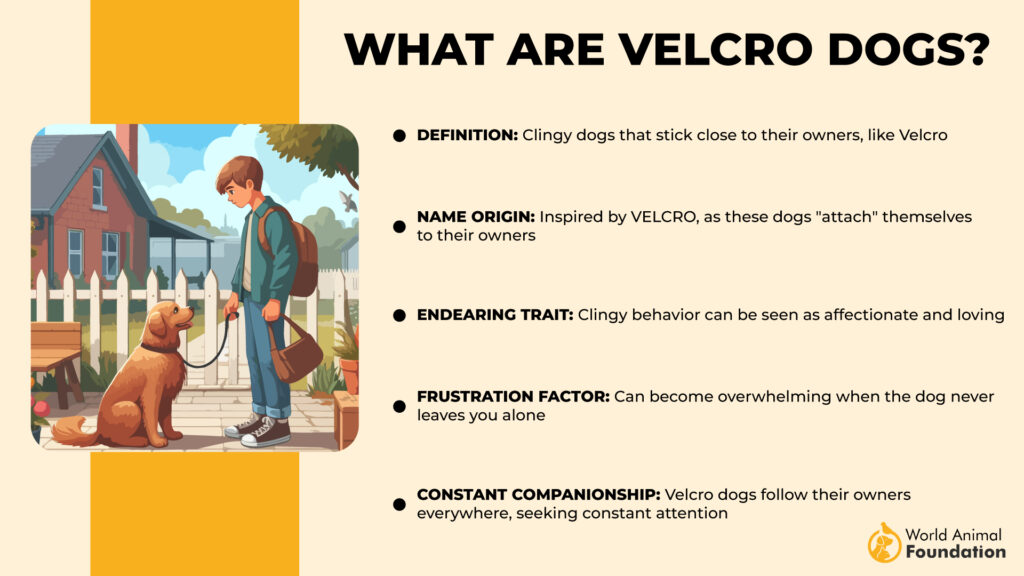
If your Golden becomes overly attached, it’s essential to establish a routine and provide gradual alone time.
Avoid reinforcing anxious behavior, and ensure your dog has engaging toys and activities when you’re away. Training and consistency help alleviate separation anxiety and promote a healthy attachment.
Bonding Tips: Regular walks and playtime enhance your connection.
Separation Anxiety Level: Moderate to high—Golden Retrievers can be prone to anxiety.
Mental Stimulation: Puzzle toys, obedience training, and interactive games.
Physical Stimulation: Daily exercise, swimming, and play sessions.
2. Labrador Retriever
Labrador Retrievers form incredibly strong emotional bonds with their families, often seeking constant companionship and interaction.
This breed is naturally affectionate and loving, and thrives in an environment where they are a core part of the family. They show their loyalty by wanting to be with you every moment, whether it’s lounging at home or participating in outdoor adventures.
If your Lab shows signs of over-attachment, consistency is key to preventing separation anxiety. Start with brief separations and gradually increase the time apart to help them adjust.
Providing them with stimulating activities and puzzle feeders can keep them occupied when you’re away.
Bonding Tips: Engage in outdoor activities and fetch games to strengthen your bond.
Separation Anxiety Level: Moderate—Labs are social and may feel lonely without their owners.
Mental Stimulation: Training sessions and fetch games.
Physical Stimulation: Regular exercise, including walks, runs, and swimming.
3. German Shepherd
German Shepherds are intensely loyal and protective, forming a powerful bond with their human family members.
This breed is highly intuitive and emotionally in tune with their owners, often going out of their way to comfort or protect them. German Shepherds experience attachment deeply, and their bond grows stronger with training and shared experiences.
If your German Shepherd becomes overly attached, it’s important to encourage independence. Gradually train them to be comfortable with short periods of separation.
Providing a structured daily routine, along with plenty of exercise and mental challenges, can help them manage their attachment.
Bonding Tips: Daily training sessions, quality one-on-one time, and interactive activities.
Separation Anxiety Level: Moderate to high—they can develop strong attachment issues if not properly socialized.
Mental Stimulation: Obedience training, scent work, and agility courses.
Physical Stimulation: Daily walks, runs, and outdoor exercises.
4. French Bulldog
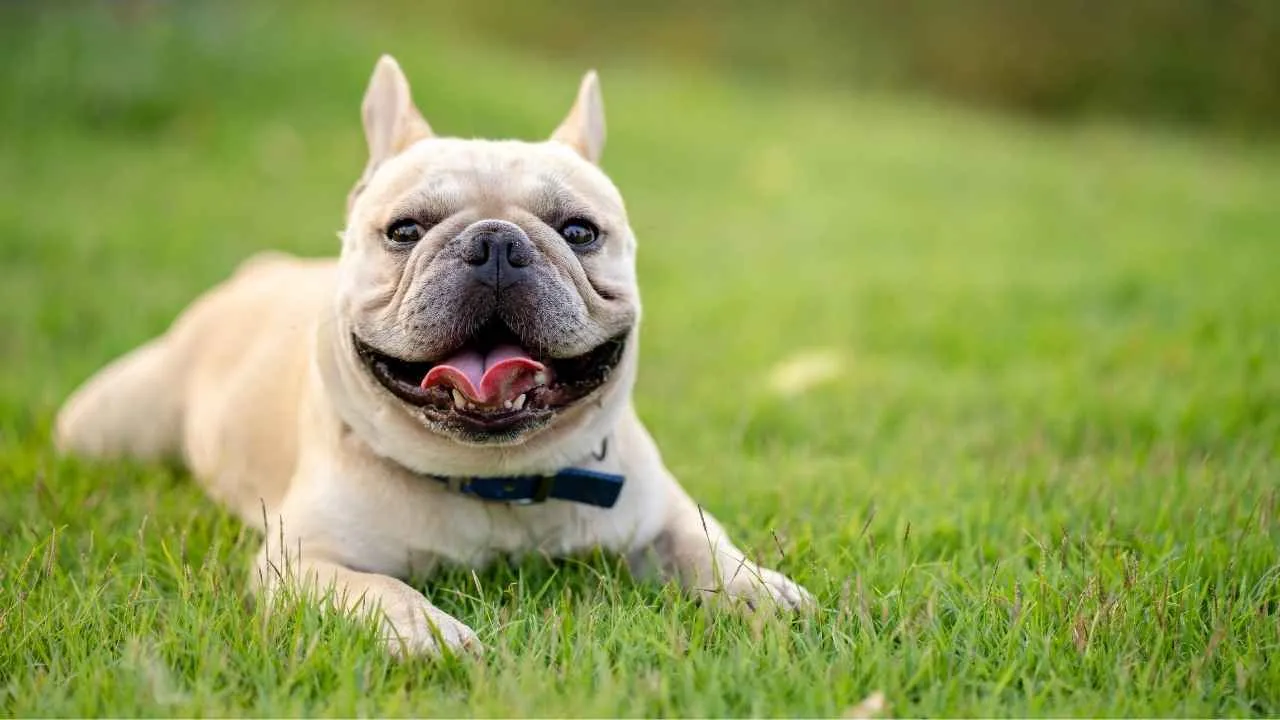
French Bulldogs may be small, but their emotional attachment to their owners is anything but. These affectionate little companions love to be the center of attention and form deep bonds with their families.
Their loyalty is unwavering, often following their owners around the house and providing comfort during stressful times.
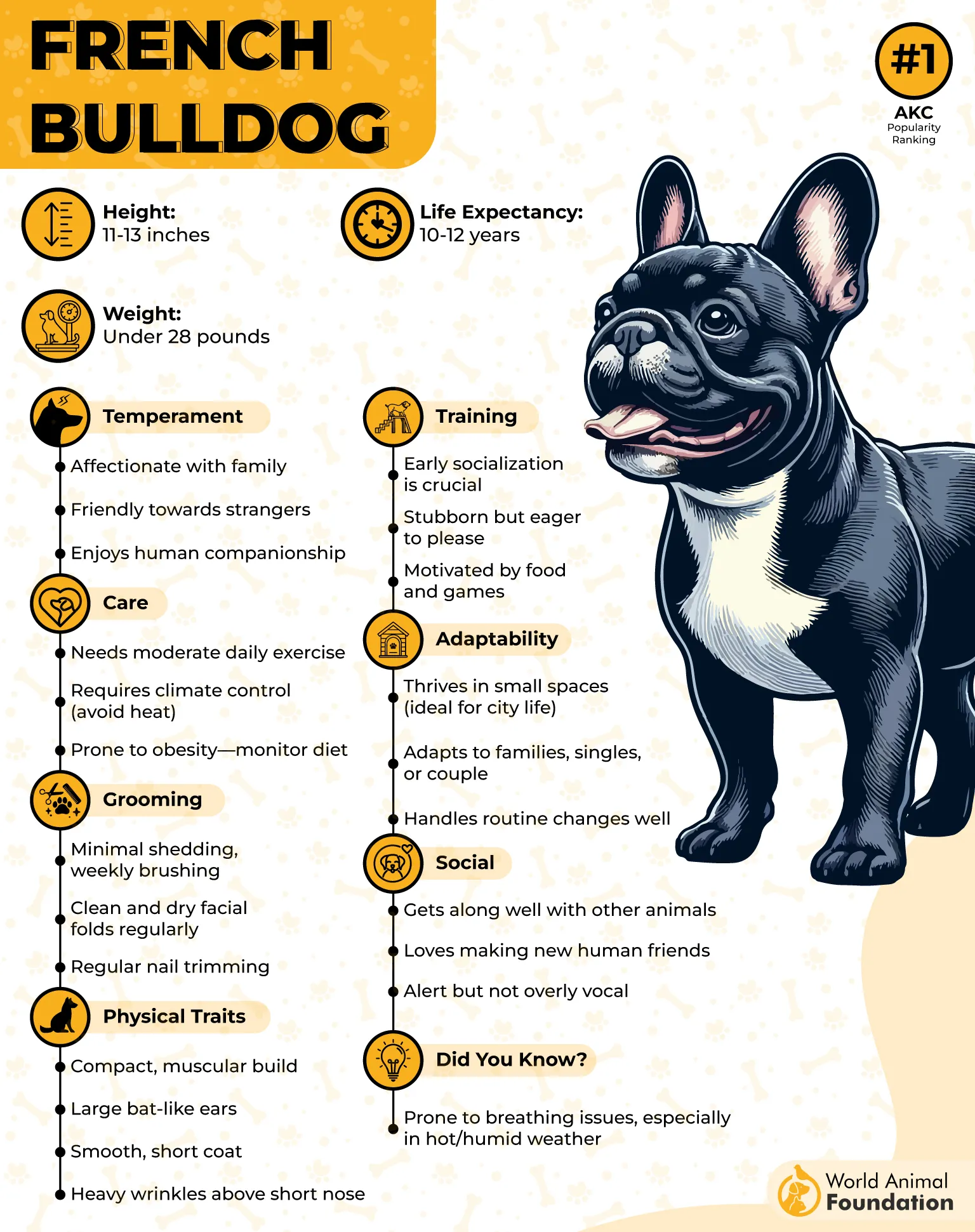
If your Frenchie becomes overly attached, it’s important to establish healthy boundaries and allow them some space.
Gradually desensitize them to being alone, providing them with plenty of toys and distractions. PDSA suggests that consistent training and positive reinforcement can also help manage separation anxiety.
Bonding Tips: Daily snuggles, interactive playtime, and close companionship.
Separation Anxiety Level: Moderate—Frenchies enjoy being near their humans and may struggle with being left alone.
Mental Stimulation: Puzzle toys, treat-dispensing toys, and interactive games.
Physical Stimulation: Short walks, light play, and snuggle time.
5. Cavalier King Charles Spaniel
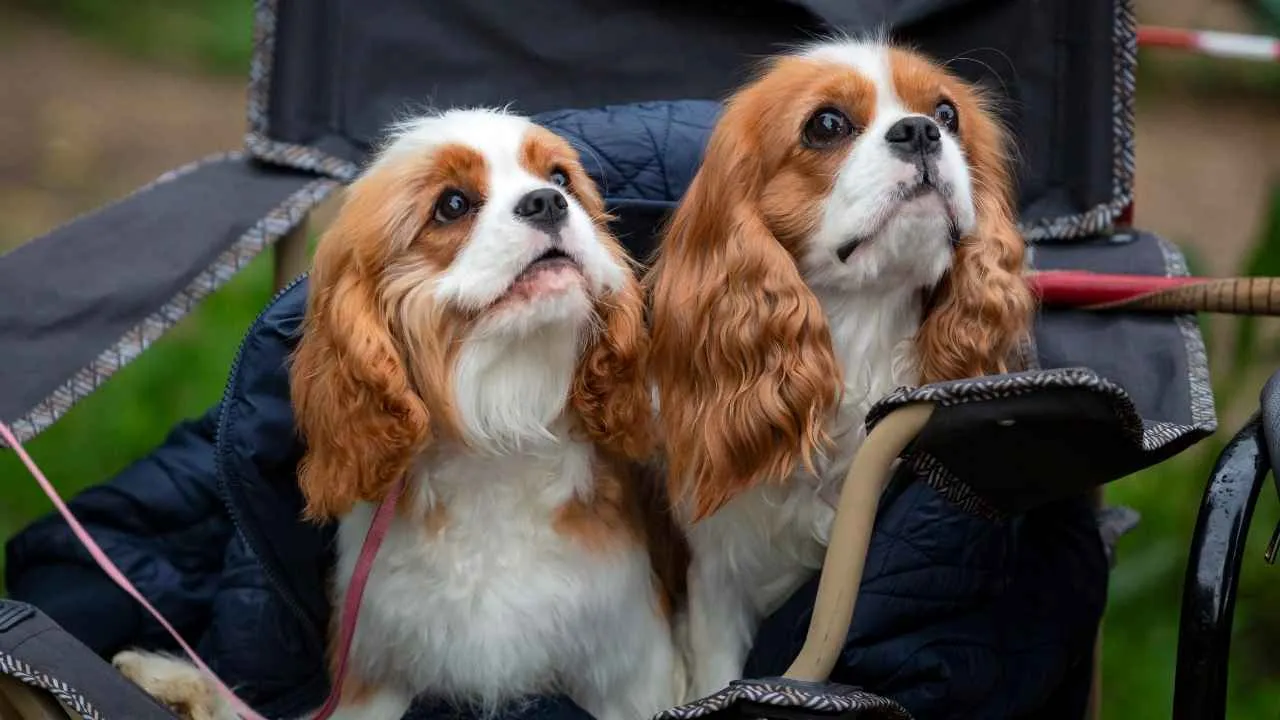
Cavalier King Charles Spaniels are known for their affectionate nature and strong attachment to their owners.
These dogs are naturally inclined to form deep emotional bonds, seeking constant companionship and love. Their gentle temperament and need for human connection make them one of the most lovable breeds when it comes to attachment.
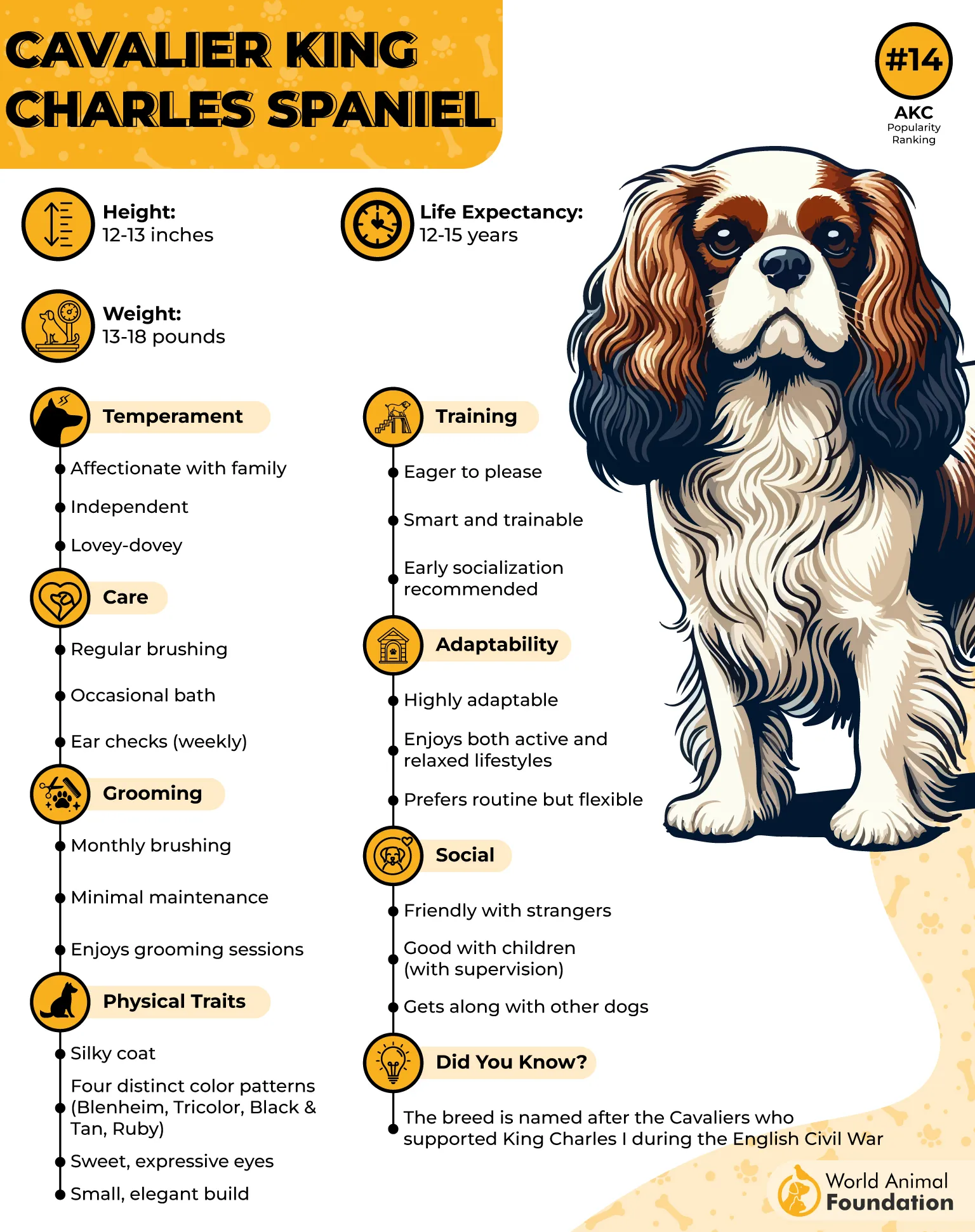
If your Cavalier becomes overly sensitive and attached, you can help by setting boundaries and ensuring they are mentally stimulated while you’re away.
They thrive with structure and routine, and they feel secure when they know their humans will return. Be patient with training and gradually increase the duration of separations to help them cope.
Bonding Tips: Regular lap time, soft play, and cuddles during downtime.
Separation Anxiety Level: Moderate—Cavaliers may experience anxiety if left alone for too long.
Mental Stimulation: Interactive toys, learning new tricks, and gentle training.
Physical Stimulation: Short walks, casual play, and snuggles.
6. Beagle
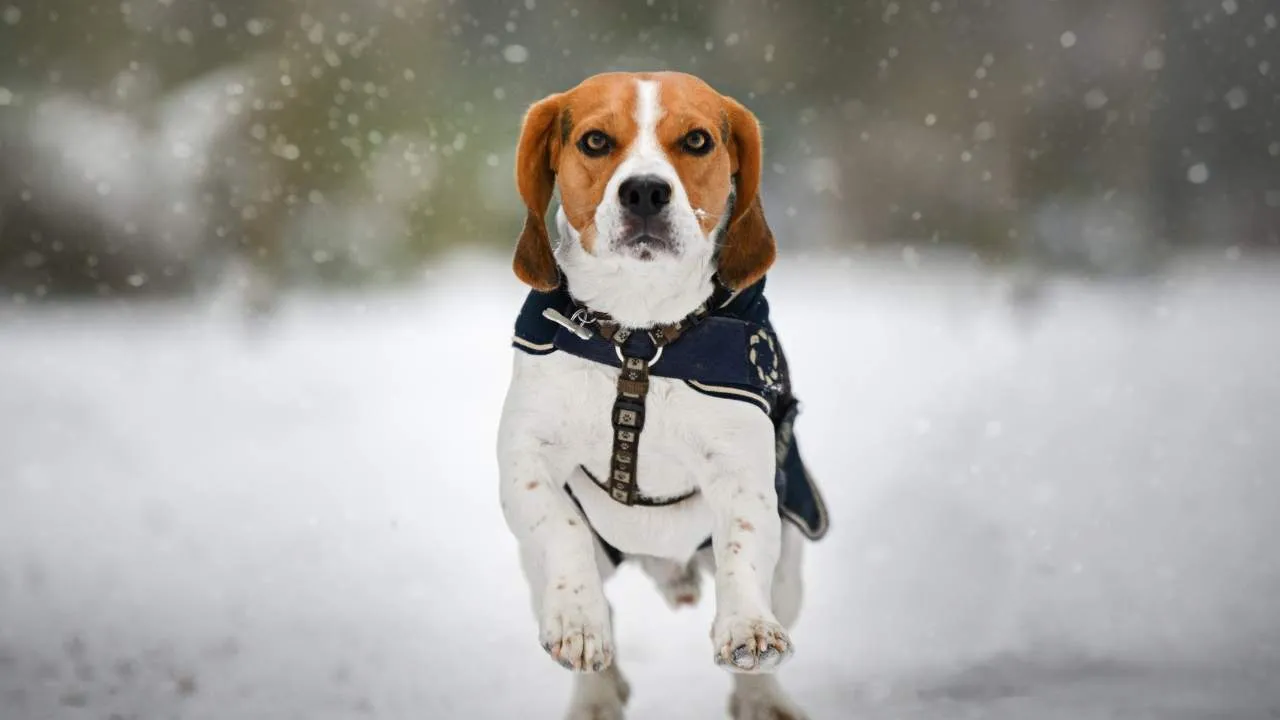
Beagles are friendly, social dogs who develop strong bonds with their families. They’re incredibly loyal and often form deep attachments to their owners, enjoying companionship and adventure, notes PetMD.
Their emotional intelligence allows them to sense when their human needs attention, offering affection and comfort when needed most.
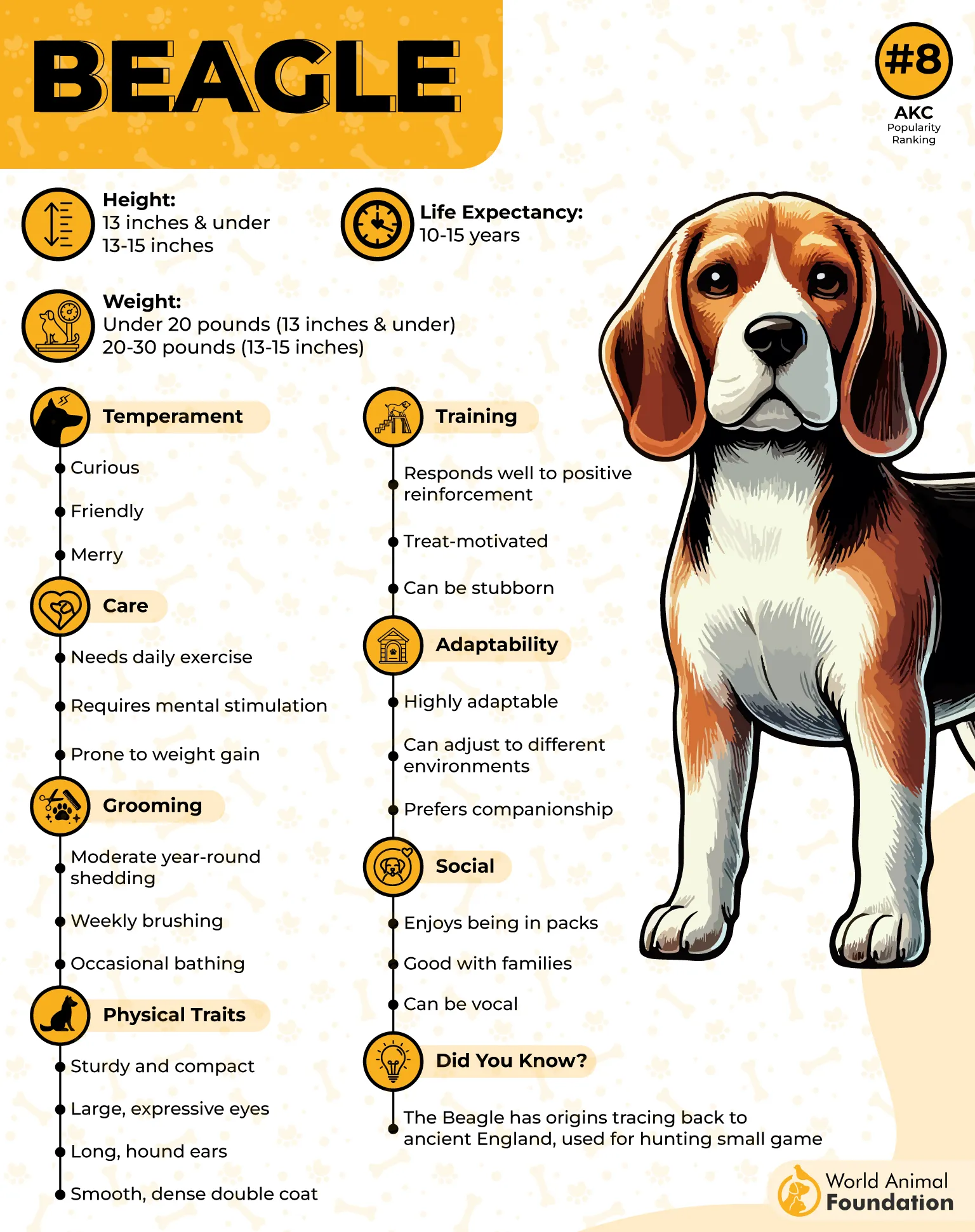
To manage an overly attached Beagle, it’s crucial to establish a structured environment where they know they can rely on their routine.
Training them to be independent through gradual separation and providing engaging activities helps prevent separation anxiety. Keep them mentally stimulated to ease any anxious behavior.
Bonding Tips: Playtime in the yard, daily walks, and shared activities.
Separation Anxiety Level: Moderate—Beagles can become vocal or destructive when left alone for too long.
Mental Stimulation: Scent work, puzzle toys, and interactive games.
Physical Stimulation: Long walks, running, and hiking.
7. Boxer
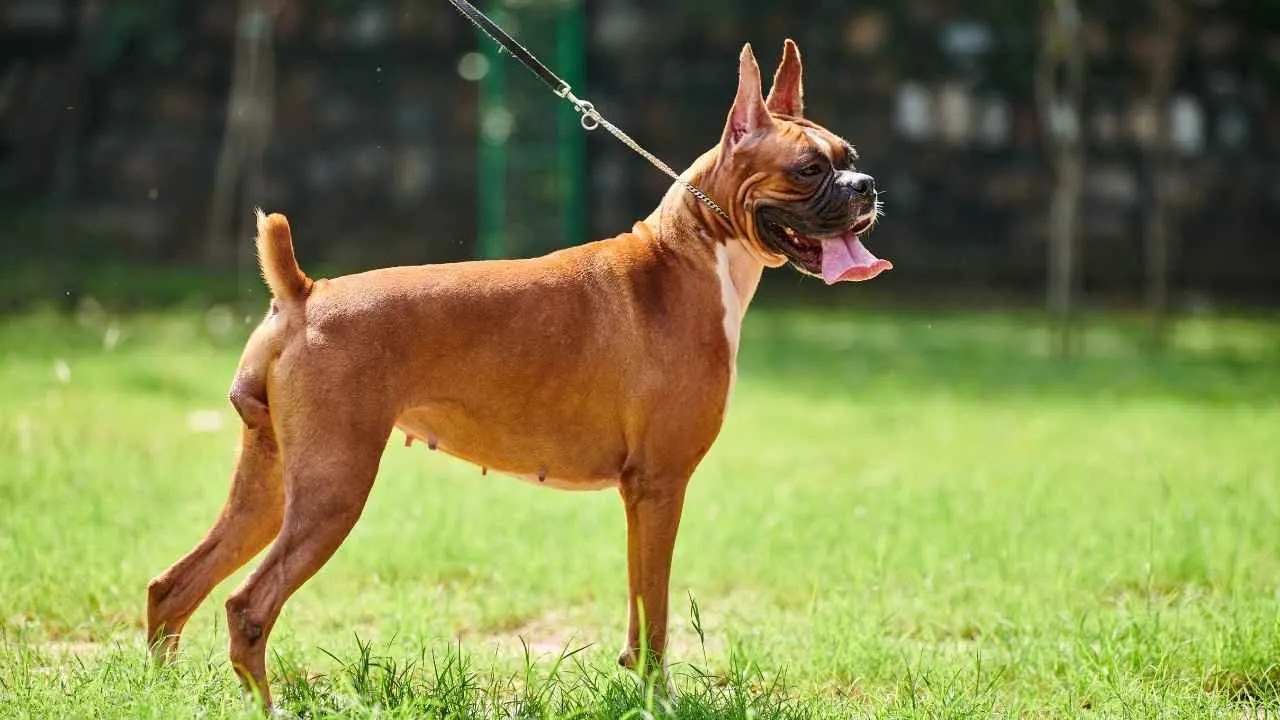
Boxers are known for their playful, energetic nature and their deep attachment to their families. They form strong bonds with their human companions and are incredibly loyal, often protective, and affectionate.
They’re excellent family dogs, offering both love and energy to those they care about, according to AKC.
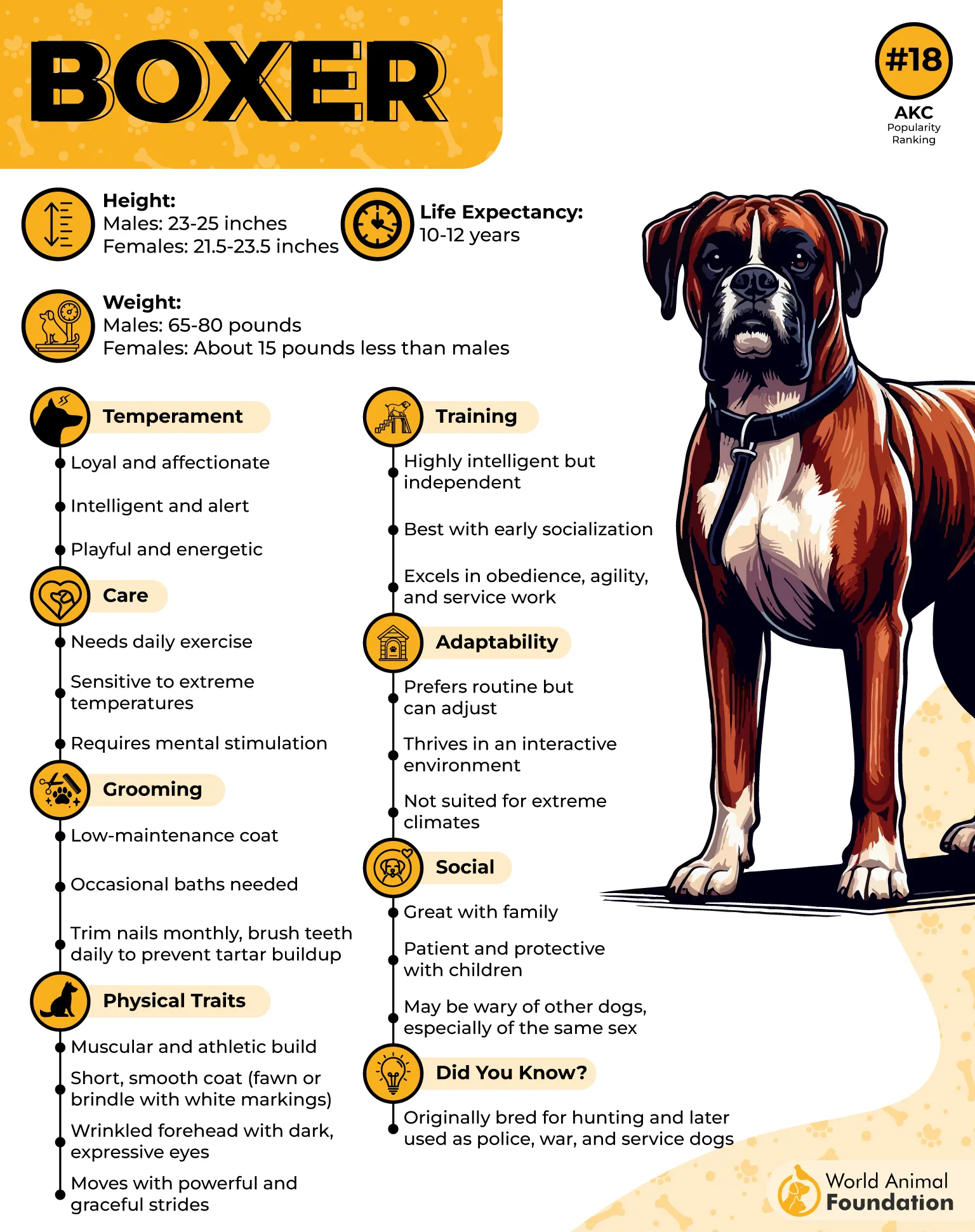
To help your Boxer with over-attachment issues, it’s important to provide them with mental and physical outlets.
Regular exercise and mental challenges keep them busy and prevent anxious behavior. Training and positive reinforcement will also teach them to be comfortable with short periods of separation.
Bonding Tips: Interactive play, regular training sessions, and active outdoor adventures.
Separation Anxiety Level: Moderate—Boxers can become anxious if left alone for extended periods.
Mental Stimulation: Obedience training, puzzle toys, and agility exercises.
Physical Stimulation: Daily runs, hiking, and vigorous play.
FAQs
How can I determine if a dog breed is likely to form a strong bond with me? Look for breeds known for loyalty and affection, like Golden Retrievers or Labrador Retrievers. These dogs tend to form strong emotional connections with their owners. Spending quality time and building trust will help strengthen the bond.
Can certain dog breeds become overly attached, and how can I manage this behavior? Yes, breeds like the Cavalier King Charles Spaniel or Beagle can become overly attached. To manage this, create a consistent routine and practice gradual separations. Provide mental stimulation and avoid reinforcing anxious behaviors.
How does a dog’s breed affect its need for attention and companionship?Each breed has unique needs—some, like the Border Collie, crave constant interaction, while others, like the Rottweiler, form strong attachments but may need more independence. Understanding a breed’s temperament helps you meet its companionship needs.
Conclusion
In the dog world, some dogs don’t just act like pets—they bond deeply, offering love and loyalty that’s unmatched. Breeds like the Doberman Pinscher, Border Collie, and Rottweiler, just like the ones we mentioned, form intense emotional connections with the right person.
Whether it’s small dogs or larger breeds, these pups prefer to stick close, often acting as your shadow. If you’re ready for a loyal companion, these dogs will always be by your side, ready to lead the way.
Ready to bond? Your perfect dog is waiting for you!


